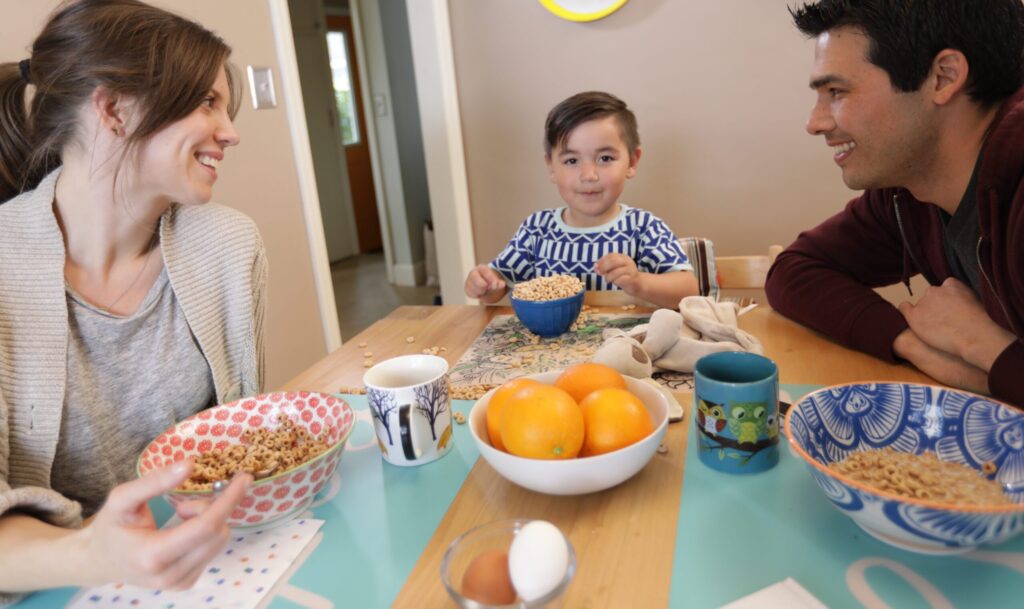
Bowlby, J. (1969). Attachment and loss: Volume 1. New York, NY: Basic Books. Center on the Developing Child at Harvard University. (n.d.). Key concepts: Brain architecture. Retrieved from http://developingchild.harvard.edu/science/key- concepts/brain-architecture/ Feldman, R. (2012, June 14). Bio-behavioral synchrony: A model for integrating biological and microsocial behavioral processes in the study of parenting. Parenting: Science and practice, […]

• Personalize the routine and ritual to balance your temperament style with your child’s. • Stay flexible and adjust routines and rituals to your child’s learning styles and changing developmental needs. • Use words that refer to sequence, such as “first,” “second,” and “next,” which help your child learn to put the day’s events in […]

Three-year-old Amanda’s mother was delighted at first when Amanda began dressing herself, but suddenly mornings became a struggle, with Amanda feeling rushed and her mother feeling frustrated by how long Amanda spent choosing an outfit. Together, they discussed the problem and made a plan for a nightly routine. They added a ritual to make what […]

Our four-step feedback loop can help you create practical routines for your daily life. In addition, it will help you replace ineffective behavioral patterns with more useful patterns of interacting with your child, making life easier for you both! 1. REMEMBER • Be proactive. Identify difficult separations or transitions in which a routine could help […]

Routines and rituals have a real impact on your child’s brain. When your child experiences consistent and predictable repetition, the pattern solidifies circuits in her brain that associate your action with a particular outcome. As she comes to realize that these outcomes are consistent and reliable (for example, you leave for work, say goodbye, take […]

Rituals that are exclusive—that is, unique to your child— make certain activities even more special and powerful.A song, phrase, or rhyme may become an exclusive ritual that only you and your child share. Thus, it becomes a symbol of your mutual understanding and unique relationship. For example, you could say, “I keep you in my […]

Many adults fear change and uncertainty, yet babies deal with these challenges every day. Their bodies are continuously developing. They go from breast, bottle, or both to feeding themselves. They move from a crib to a bed. They’re constantly learning new skills and meeting new people. What helps little ones get through this? Routines and […]


